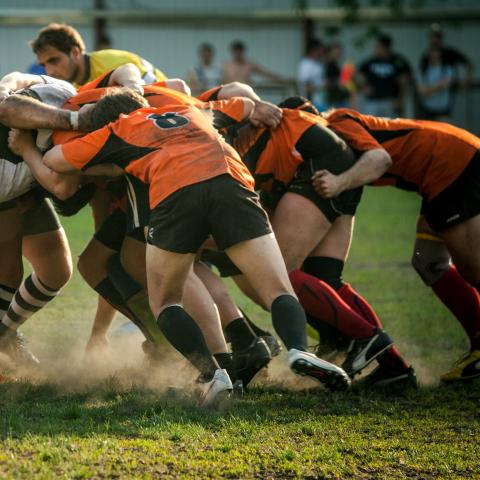

Interviewed by Reader in Visual Culture, Dr Marius Kwint, Joe Glenton gave a fascinating overview of his recent book Veteranhood: Rage and Hope in British Ex-Military Life
On the evening of 6 June, the CCI Faculty’s Conflict and Culture research group hosted an evening with former soldier Joe Glenton – now a peace activist and journalist, as well as the host of the popular Forces Watch podcast ‘Warrior Nation’. Interviewed by Reader in Visual Culture, Dr Marius Kwint, Glenton gave a fascinating overview of his recent book Veteranhood: Rage and Hope in British Ex-Military Life (available from Repeater Books).
Glenton said that he wrote the book as a response to the involvement of far-right former soldiers in social activism and the exploitation of veteranhood by mainstream politicians seeking to suppress anti-war sentiment. His aim, he said, had been to challenge the assumption that veterans could only ever be fascists or conservatives.

Glenton said that he wrote the book as a response to the involvement of far-right former soldiers in social activism and the exploitation of veteranhood by mainstream politicians seeking to suppress anti-war sentiment. His aim, he said, had been to challenge the assumption that veterans could only ever be fascists or conservatives.
Dr Stephen Harper, Senior Lecturer, University of Portsmouth
Critiquing the historical – and continuing – stereotyping of ex-soldiers, Glenton observed that veteranhood is a far more "complex experience” than is often assumed, with former soldiers expressing many different political and social views.
From there the discussion turned to the image of the military in culture and the arts, with Glenton expressing his concerns about the “SAS-ification of culture”. At the same time, Glenton spoke of his admiration for radical artists such as Michael Rakowitz, the creator of ‘April is the Cruellest Month’, the thought-provoking sculpture of former soldier and PTSD sufferer Daniel Taylor.
Kwint and Glenton also discussed the shift in the nature of ‘remembrance’ from the more sombre rites of the post-war period to the increasingly “corporate” commemorative rituals of the present day.
It was an evening of many striking insights, such as Glenton’s observation that the trauma many soldiers experience is often a response to military culture and training rather than a specific event experienced on tour.
It was an evening of many striking insights, such as Glenton’s observation that the trauma many soldiers experience is often a response to military culture and training rather than a specific event experienced on tour.
Dr Stephen Harper, Senior Lecturer, University of Portsmouth
The evening concluded with a lively Q and A from the audience and a social meeting in the nearby Guildhall Village.
More Democratic Citizenship blogs
Message or the Man (or the cake)? part 2
Message or the Man (or the cake)? part 2
13 July 2023
5 minutes

Falling reputations mean that women and minorities no longer want to work for the police in the US or UK
27 June 2023
4 min read

Professional men’s rugby has major financial issues which need to be tackled
Christina Philippou
26 June 2023
4 min read

